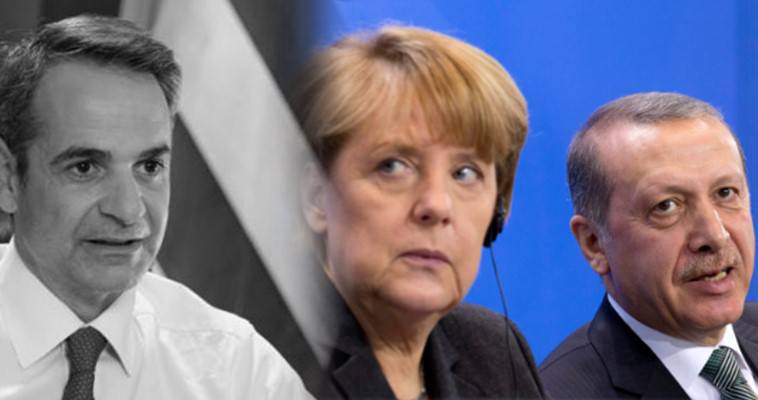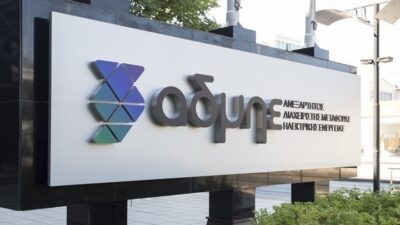Alexandros Tarkas: Who is pushing for a negotiation package with Turkey – The three steps proposed by Athens
08/07/2020
Kyriakos Mitsotakis’ telephone conversation with Recep Tayyip Erdogan both aroused the enthusiasm of those who expect a quick reconciliation with Ankara and indignation among those who reject risky forms of bilateral communication. Some possible internal unrest within the leading New Democracy party is also predicted after the public display of a different agenda by former Prime Minister Antonis Samaras.
The content of the conversation – according to authoritative sources – however, is far from all hasty assessments from all sides, as there was an agreement on only two issues. First, in the usual way that effective communication channels should work. Secondly, in the first instance confirmation of meetings at the official level in the near future.
In the first case, it was ruled that communication could be established between the director of the Prime Minister’s Diplomatic Office, Ambassador Eleni Sourani, and the foreign policy adviser to Turkish President Ibrahim Kalin, in order to ease tensions. A new Mitsotakis – Erdogan communication is not expected in the short term and it may not be any better.
The Turkish president felt “offended” by General Haftar’s invitation to visit Athens. And the Greek government is now declaring that it made a mistake. Kyriakos Mitsotakis was surprised by the speed with which the memorandum with Libya was submitted to the Turkish National Assembly for ratification, but the bottom line is that Ankara is not compensating in the slightest. In addition, Deputy Foreign Minister Giannis Kapsis’s warning to Prime Minister Andreas Papandreou in 1988 that “President, I am not afraid of what you will say on the phone, but what the Turks will claim that you said,” remains alive.
Convening a Cooperation Council
On the issue of official contacts, the Turkish side has repeatedly demanded (from the failed London summit on December 4, 2019 until recently) new meetings between Mitsotakis-Erdogan and Dendias-Cavusoglu. He also called for the expansion of (military) confidence-building measures and the convening of the Supreme Cooperation Council with an emphasis on economic issues.
The Cooperation Council has been pending since October 2017 and the Greek side had initially made the mistake of agreeing to in September 2019. Under current circumstances, the government appears to be insisting on rejecting Turkish demands as long as aerial and maritime provocations continue, in the Aegean, and the instrumentalization of Immigration.
On the contrary, in Athens it is considered useful to repeat the regular (every six months) consultations of the two Ministries of Foreign Affairs at the level of general secretaries. The last two rounds took place in Athens, in April 2019 and in Ankara, in January 2020. In both meetings, the Turkish side was aggressive and counterproductive. Nevertheless, the Greek diplomatic service rightly considers that this is the most appropriate level of discussion.
In January, Foreign Secretary General Themistocles Demiris allegedly codified the process of restoring relations as a step-by-step procedure: successive avoidance of aggressive statements, non-implementation of the Turkish Memorandum of Understanding, Council of Ministers dialogue, meetings. And of course without the pressure of the provocations and overflights of Greek islands.
The negotiation-package
Given that the overflights continued after the telephone conversation between Mitsotakis and Erdogan, it is a decision of the Prime Minister whether the Greek side will demand an absolute end to the regular consultations at the level of general secretaries, or only a reduction in their number and intensity before the restart. of dialogue. It is unknown whether Kyriakos Mitsotakis will demand in the non-implementation of the Turkish-Libyan memorandum.
At the same time, the leaks from the PM’s office about the removal of the impasse after the intervention of the German Chancellor Angela Merkel and her readiness for new mediation should not be overestimated. The differences between Berlin and Ankara are so great that there is no realistic hope for effective mediation by the German chancellor.
The chancellor stressed the need to prevent the deterioration of the situation in Libya (where Turkey is operating unchecked and achieving its goals) and to tempt Recep Tayyip Erdogan with EU financial assistance. Both Angela Merkel priorities assist Greek, but do not solve the problems in the Aegean and the Southeastern Mediterranean.
In this context, German and Turkish diplomats discussed the idea of a comprehensive Athens-Ankara agreement on the Aegean (as well as on 1991-92 and 2010-11), but also on the Eastern Mediterranean, in which case the Greek government will be pressured. A proposal to the government, in the form of a “question” for a broad Greek-Turkish dialogue, had been submitted by Washington as early as December 2019.





